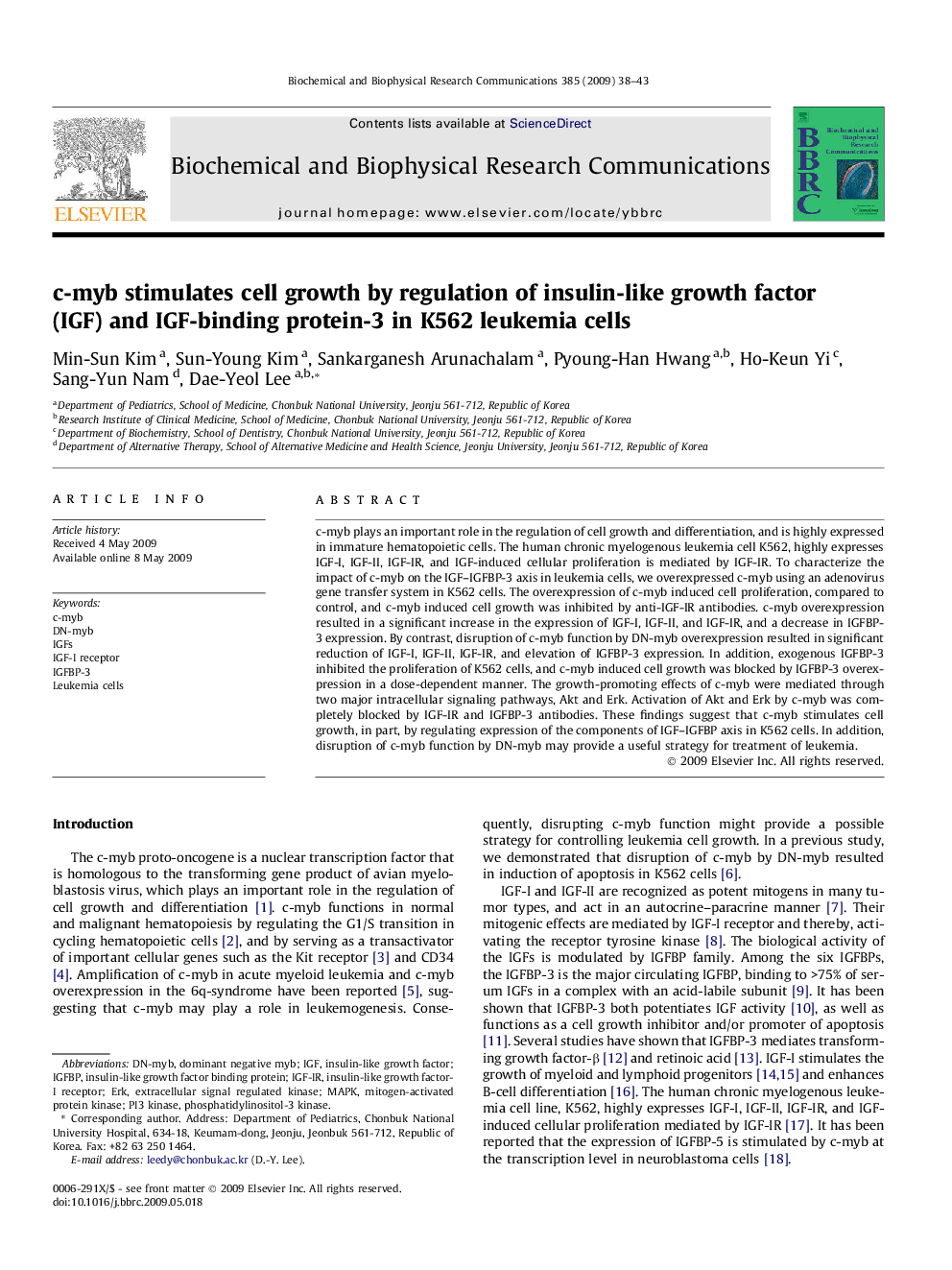| Article ID | Journal | Published Year | Pages | File Type |
|---|---|---|---|---|
| 1933086 | Biochemical and Biophysical Research Communications | 2009 | 6 Pages |
c-myb plays an important role in the regulation of cell growth and differentiation, and is highly expressed in immature hematopoietic cells. The human chronic myelogenous leukemia cell K562, highly expresses IGF-I, IGF-II, IGF-IR, and IGF-induced cellular proliferation is mediated by IGF-IR. To characterize the impact of c-myb on the IGF–IGFBP-3 axis in leukemia cells, we overexpressed c-myb using an adenovirus gene transfer system in K562 cells. The overexpression of c-myb induced cell proliferation, compared to control, and c-myb induced cell growth was inhibited by anti-IGF-IR antibodies. c-myb overexpression resulted in a significant increase in the expression of IGF-I, IGF-II, and IGF-IR, and a decrease in IGFBP-3 expression. By contrast, disruption of c-myb function by DN-myb overexpression resulted in significant reduction of IGF-I, IGF-II, IGF-IR, and elevation of IGFBP-3 expression. In addition, exogenous IGFBP-3 inhibited the proliferation of K562 cells, and c-myb induced cell growth was blocked by IGFBP-3 overexpression in a dose-dependent manner. The growth-promoting effects of c-myb were mediated through two major intracellular signaling pathways, Akt and Erk. Activation of Akt and Erk by c-myb was completely blocked by IGF-IR and IGFBP-3 antibodies. These findings suggest that c-myb stimulates cell growth, in part, by regulating expression of the components of IGF–IGFBP axis in K562 cells. In addition, disruption of c-myb function by DN-myb may provide a useful strategy for treatment of leukemia.
